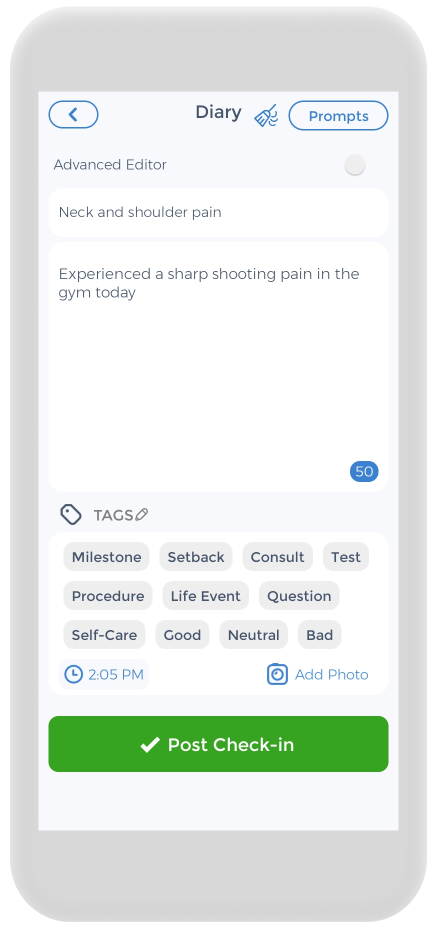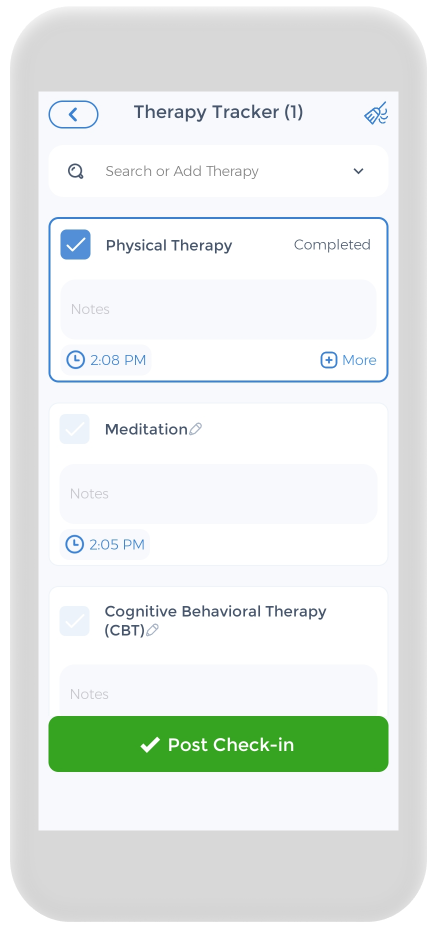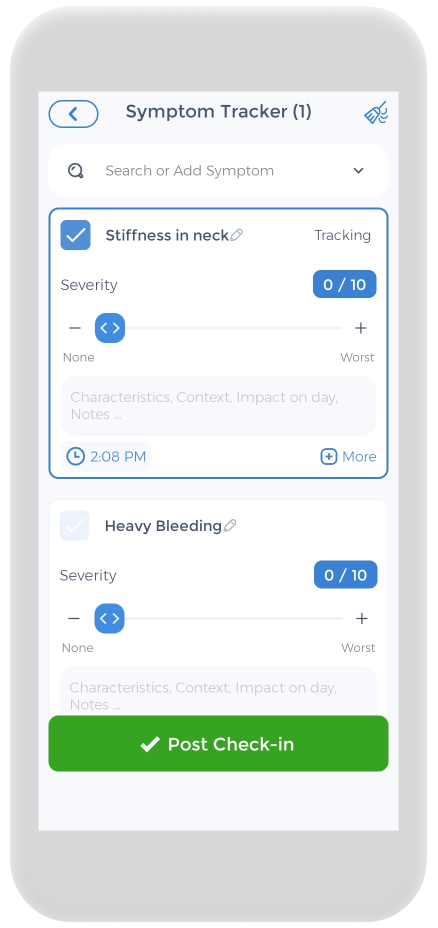
A pinched nerve in the neck, or cervical radiculopathy, can be an uncomfortable and sometimes debilitating condition. If you’re experiencing neck pain, numbness, or tingling, it’s important to understand what causes a pinched nerve in neck, and how it can be treated. In this article, we will explore the various treatment options available to alleviate the symptoms of a pinched nerve in the neck, as well as preventative measures and coping strategies for living with this condition.[1][2][3]
Understanding Pinched Nerves
Pinched nerves are a common condition that can occur anywhere in the body, including the neck. When a nerve is compressed or irritated, it can cause pain, numbness, and weakness in the affected area. In the case of a pinched nerve in the neck (cervical radiculopathy), the symptoms may radiate down the arm and even into the hands and fingers.
What is a Pinched Nerve?
A pinched nerve occurs when there is increased pressure on a nerve due to surrounding tissues, such as muscles, bones, or tendons, putting pressure on the nerve. This pressure disrupts the normal function of the nerve, leading to pain and other symptoms [1].
muscles, bones, or tendons, putting pressure on the nerve. This pressure disrupts the normal function of the nerve, leading to pain and other symptoms [1].
Imagine a scenario where a nerve is like a road, and the surrounding tissues are like buildings on either side of the road. When these buildings start to encroach onto the road, it puts pressure on the road, making it difficult for cars to pass through smoothly. Similarly, when the surrounding tissues put too much pressure on a nerve, it hinders the nerve’s ability to transmit signals effectively, resulting in various symptoms.
Causes of Pinched Nerves in the Neck
Cervical radiculopathy occurs from various causes. Some common causes include:
- Disc herniation: A bulging or herniated disc in the neck can compress the nerves.
- Spinal stenosis: Narrowing of the spinal canal can put pressure on the nerves.
- Poor posture: Maintaining improper posture for extended periods can strain the neck and lead to pinched nerves.
- Injury or trauma: Accidents or sports injuries can result in pinched nerves in the neck.
Disc herniation occurs when the soft cushioning discs between the vertebrae in the neck rupture or bulge, pressing against the nearby compressed nerves. Spinal stenosis, on the other hand, is a condition where the spinal canal narrows, often due to age-related changes, causing the nerves to become compressed. Poor posture, such as slouching or hunching over a desk, can strain the neck and contribute to the development of pinched nerves. Additionally, injuries or trauma to the neck, such as whiplash from a car accident or a fall, can lead to pinched nerves. Spinal nerve root damage, bulging or herniated disk, electrical impulses, can all contribute to developing cervical radiculopathy.
Symptoms of a Pinched Nerve in the Neck
The symptoms of cervical radiculopathy can vary depending on the location and severity of the compression. Some common symptoms include:
- Neck stiffness or pain
- Numbness or tingling in the neck, shoulders, arms, or hands
- Weakness in the affected area
- Headaches
When a nerve in the neck is pinched, it can cause localized or radiating pain or stiffness in the neck itself. However, the effects of the pinched nerve may extend beyond the neck, leading to numbness or tingling sensations that radiate down the shoulders, arms, and even into the hands and fingers. This can make simple tasks like gripping objects or typing on a keyboard challenging. In some cases, the affected muscles may weaken, causing difficulties with strength and coordination. Additionally, pinched nerves in the neck or spinal cord can sometimes trigger headaches, further adding to the discomfort experienced by individuals.[4][5]
Diagnosis of a Pinched Nerve
If you suspect you have a pinched nerve in your neck, it’s important to consult a healthcare professional for a proper diagnosis. They will assess your symptoms and medical history and may perform various diagnostic tests to confirm the presence of a pinched nerve.
A pinched nerve in the neck can cause a variety of symptoms, including pain, numbness, tingling, and weakness in the affected area. These symptoms can range from mild to severe and may interfere with your daily activities and quality of life. It is crucial to seek medical attention to receive appropriate treatment and prevent further complications.
When to See a Doctor
Seek medical attention if you experience severe or persistent neck pain, or if your symptoms worsen over time. Additionally, if you have difficulty moving your neck, have lost control of your bladder or bowel, or have trouble walking, seek immediate medical attention as these could be signs of a more serious condition.
It is important not to ignore the symptoms of a pinched nerve in the neck, as early diagnosis and treatment can lead to better outcomes. Delaying medical care may result in worsening symptoms and potential long-term complications.
Diagnostic Tests for Pinched Nerves
To diagnose a pinched nerve in the neck, your healthcare provider may order one or more of the following diagnostic tests:
- Magnetic Resonance Imaging (MRI): This imaging test provides detailed images of the spine and can reveal any abnormalities that may be causing the pinched nerve. A CT scan is another imaging option
- X-rays: X-rays can help identify bone spurs or other structural issues that may be compressing the nerve.
- X-rays are commonly used to evaluate the bony structures of the neck. They can provide valuable information about the alignment of your spine, the presence of any fractures or dislocations, and the presence of bone spurs that may be contributing to the pinched nerve. X-rays are quick and painless, making them a convenient diagnostic tool.
- Electromyography (EMG): This test measures the electrical activity of the muscles and can determine if there is nerve damage associated with the pinched nerve.
- An electromyography (EMG) test assesses the electrical activity of your muscles and the function of the nerves controlling them. During the test, small electrodes are placed on your skin, and a small electric current is applied to stimulate the nerves. The electrical signals produced by your muscles are recorded and analyzed. This test can help determine the severity of nerve damage and identify the specific nerves affected by the pinched nerve.
These diagnostic tests, along with a thorough physical examination and assessment of your symptoms, can provide valuable information to your healthcare provider in making an accurate diagnosis of a pinched nerve in your neck. Once a diagnosis is confirmed, appropriate treatment options can be explored to alleviate your symptoms and improve your overall well-being.[6][7][8][9]
How to Treat Cervical Radiculopathy Symptoms
Experiencing a pinched nerve in the neck can be a painful and debilitating condition. Fortunately, there are several treatment options available to help alleviate the discomfort and restore function. The choice of treatment will depend on the severity of your symptoms and the underlying cause of the pinched nerve.
Home Remedies for Pinched Nerve Relief
If your symptoms are mild, you may be able to find relief with self-care measures. These home remedies can help relieve pain, reduce inflammation and promote healing. Some effective home remedies for a pinched nerve in the neck include:
- Resting the affected area: Giving your neck a break from any activities that may aggravate the pinched nerve can help reduce pain and inflammation.
- Applying heat or cold packs: Alternating between heat and cold therapy can help reduce swelling and soothe the affected area. Applying a cold pack for 15 minutes followed by a warm compress can provide relief.
- Taking over-the-counter pain relievers: Nonsteroidal anti-inflammatory drugs (NSAIDs), such as ibuprofen, can help alleviate pain and reduce inflammation.
- Practicing good posture and ergonomics: Maintaining proper posture and using ergonomic equipment, such as an adjustable chair and keyboard, can help prevent further strain on the neck and alleviate symptoms.
Physical Therapy Techniques
Physical therapy can be a valuable treatment option for relieving symptoms and improving the function of a pinched nerve in the neck. A skilled physical therapist will develop a personalized treatment plan tailored to your specific needs. Some common physical therapy techniques for a pinched nerve in the neck include:
of a pinched nerve in the neck. A skilled physical therapist will develop a personalized treatment plan tailored to your specific needs. Some common physical therapy techniques for a pinched nerve in the neck include:
- Stretching exercises to improve flexibility: Gentle stretching exercises can help relieve tension and improve the range of motion in the neck, providing relief from a pinched nerve.
- Strengthening exercises to support the affected area: Strengthening the muscles surrounding the pinched nerve can help provide stability and support, reducing the pressure on the nerve.
- Manual therapy techniques to reduce pain and improve mobility: Hands-on techniques, such as massage, joint mobilization, and spinal manipulation, can help alleviate pain, reduce inflammation, and improve mobility.
Medications for Pinched Nerve Treatment
In some cases, your healthcare provider may prescribe medications to help manage the pain and inflammation associated with a pinched nerve [2]. These medications can provide temporary relief while other treatment modalities take effect. Common medications used for pinched nerve treatment include:
- Nonsteroidal anti-inflammatory drugs (NSAIDs): NSAIDs, such as ibuprofen or naproxen, can help reduce pain, inflammation, and swelling.
- Oral corticosteroids: Corticosteroids, such as prednisone, may be prescribed to reduce inflammation and alleviate symptoms.
- Muscle relaxants: Muscle relaxants, such as cyclobenzaprine, can help relieve muscle spasms and reduce pain associated with a pinched nerve.
Surgical Options for Severe Cases
In rare cases where conservative treatments fail to provide relief or if your symptoms are severe, surgery may be recommended. Surgical options for a pinched nerve in the neck aim to alleviate pressure on the affected nerve and restore normal function. Some surgical procedures that may be performed include:
- Laminectomy: This procedure involves removing a portion of the vertebral bone or disc to relieve pressure on the nerve. By creating more space, the pinched nerve can recover and function properly.
- Discectomy: In cases where a herniated disc is causing the compression, a discectomy may be performed to remove the damaged portion of the disc. This procedure can relieve pressure on the nerve and reduce symptoms.
- Fusion: In some instances, spinal fusion may be necessary to stabilize the spine and prevent further compression of the nerves. This procedure involves fusing two or more vertebrae together using bone grafts or metal hardware.
It is important to consult with a healthcare professional to determine the most appropriate treatment option for your specific condition. They will consider factors such as the severity of your symptoms, the underlying cause of the pinched nerve, and your overall health before recommending a course of treatment.[10][11][12][13]
Prevention of Pinched Nerves
Pinched nerves in the neck can be a painful and debilitating condition. While it may not be possible to prevent all cases of pinched nerves, there are steps you can take to reduce your risk and promote overall neck health. By implementing lifestyle changes and incorporating targeted exercises, you can help prevent the occurrence of pinched nerves and maintain a healthy neck.
Lifestyle Changes to Prevent Pinched Nerves
Practicing good posture is essential in preventing pinched nerves in the neck. When you maintain proper alignment of the spine, you reduce the pressure on spinal nerve roots and decrease the risk of compression. It is important to be mindful of your posture throughout the day, whether you are sitting at a desk, standing, or engaging in physical activities. Also, pinched nerve occurs sometimes due to having fallen asleep in the wrong position, so be wary of that.
In addition to maintaining good posture, maintaining a healthy weight is crucial in preventing pinched nerves. Excess weight puts added strain on the neck and can lead to the compression of nerves. By adopting a balanced diet and engaging in regular exercise, you can achieve and maintain a healthy weight, reducing the risk factors of pinched nerves.
Avoiding repetitive motions that strain the neck is another important step in preventing pinched nerves. Certain activities, such as constantly looking down at your phone or computer screen, can place excessive stress on the neck and lead to nerve compression. It is advisable to take frequent breaks and vary your movements to avoid prolonged strain on the neck.
Additionally, taking regular breaks to stretch and move throughout the day can help relieve tension in the neck muscles and reduce the risk of compression. Simple stretches, such as gently tilting your head from side to side or rolling your shoulders, can help alleviate muscle tightness and promote blood flow to the neck area.
Exercises to Prevent Neck Nerve Pinching
Specific exercises and stretches targeted at strengthening the neck and improving flexibility can be highly effective in preventing pinched nerves. These exercises help to maintain the stability of the neck and reduce the likelihood of nerve compression. However, it is important to consult with a physical therapist or healthcare professional before starting any exercise regimen, as they can provide guidance on appropriate exercises for your individual needs.
A physical therapist can assess your specific condition and design a personalized exercise program to address your unique needs. This may include exercises to strengthen the muscles supporting the neck, improve range of motion, and enhance overall neck stability. By consistently performing these exercises under the guidance of a professional, you can significantly reduce the risk of developing pinched nerves in the neck.
It is worth noting that while exercises can be beneficial in preventing pinched nerves, it is important to avoid overexertion or improper form during physical activity. Engaging in exercises with incorrect technique or excessive intensity can actually increase the risk of injury and nerve compression. Therefore, it is crucial to follow proper instructions and listen to your body’s limits when performing any exercises.
In conclusion, by implementing lifestyle changes such as practicing good posture, maintaining a healthy weight, and avoiding repetitive motions, along with incorporating targeted exercises under the guidance of a professional, you can take proactive steps to prevent pinched nerves in the neck. By prioritizing neck health and making these adjustments, you can reduce the risk of nerve compression and enjoy a pain-free, functional neck.[14][15][16]
Living with a Pinched Nerve
 Coping with chronic pinched nerve pain can be challenging, but there are strategies that can help improve your quality of life. Understanding the causes and symptoms of a pinched nerve, as well as implementing effective coping strategies, can make a significant difference in managing the pain and preventing further complications.
Coping with chronic pinched nerve pain can be challenging, but there are strategies that can help improve your quality of life. Understanding the causes and symptoms of a pinched nerve, as well as implementing effective coping strategies, can make a significant difference in managing the pain and preventing further complications.
A pinched nerve occurs when excessive pressure is applied to a nerve by surrounding tissues, such as bones, muscles, tendons, or cartilage. This pressure can disrupt the nerve’s normal function, leading to pain, numbness, tingling, or weakness in the affected area. Common causes of pinched nerves include injury, repetitive motions, poor posture, obesity, and certain medical conditions like arthritis or herniated disk.
Coping Strategies for Chronic Pinched Nerve Pain
Utilizing relaxation techniques, such as deep breathing or meditation, can help manage chronic pain. These techniques promote a sense of calmness and reduce muscle tension, providing relief to the affected nerve. Additionally, finding ways to reduce stress, such as through regular exercise or engaging in hobbies, can also be beneficial. Exercise not only helps in maintaining a healthy weight but also strengthens the muscles surrounding the pinched nerve, providing extra support and reducing the pressure on the nerve.
It may also be helpful to join a support group to connect with others who are facing similar challenges. Sharing experiences, tips, and emotional support with people who understand your struggles can make a significant difference in your overall well-being. Support groups can provide a safe space to vent frustrations, gain valuable insights, and learn about new treatments or strategies that have worked for others.
Long-Term Effects of a Pinched Nerve
If left untreated or not properly managed, a pinched nerve in the neck can have long-term effects on your daily life. These may include persistent pain, limited mobility, and decreased overall function. The pain can become so severe that it interferes with your ability to perform simple tasks, such as getting dressed or holding objects. Limited mobility can lead to muscle weakness and atrophy, further exacerbating the pain and reducing your quality of life.
Seeking appropriate treatment and following the recommended preventative measures can help minimize the long-term impact of a pinched nerve. Treatment options may include physical therapy, pain medication, steroid injections, or in severe cases, surgery. It is important to consult with a healthcare professional to determine the most suitable treatment plan for your specific condition.
Preventative measures can also play a crucial role in managing and preventing future pinched nerves. Maintaining good posture, practicing regular stretching exercises, and avoiding repetitive motions or activities that strain the affected area can help alleviate symptoms and reduce the risk of further nerve compression. Additionally, maintaining a healthy weight, eating a balanced diet, and staying active can contribute to overall nerve health and reduce the risk of developing pinched nerves.
Living with a pinched nerve can be challenging, but with the right strategies and support, it is possible to improve your quality of life and minimize the long-term effects. By understanding the causes, symptoms, and treatment options, you can take control of your condition and find effective ways to manage the pain and regain your mobility.[17][18][19]
Using the CareClinic App to Manage Pain
Having a pain diary is crucial for your health, and the CareClinic app can help with that. You can use the app as your health and clinical journal. Just go to the pain diary section of the app and enter your daily symptoms, medications, and other triggers, as they occur. There are also specific sections on the app to track each of these. This can help you be aware of early warning signs. Whether you suffer from chronic low back pain, chronic tension headache, impaired physical and mental functioning, chronic headaches, chronic widespread pain, chronic musculoskeletal pain, chronic neck pain, or depressive and anxiety disorders, the app is here to help you improve your chronic pain-related health.
The app also has a medication section where you can precisely track the pain therapies you are undergoing, whether it be superficial heat, spinal manipulation, relaxation therapy, or transcutaneous electrical nerve stimulation. Hopefully, having all this information handy will help you with treating chronic pain conditions.
Dealing with a pinched nerve in the neck can be a frustrating and uncomfortable experience. However, with the right treatment and lifestyle adjustments, it is possible to manage the symptoms and improve your quality of life. If you are experiencing symptoms of a pinched nerve in the neck, it is important to consult with a healthcare professional for an accurate diagnosis and appropriate treatment plan. By taking proactive steps to care for your neck and cervical spine now, you can reduce the risk of developing a pinched nerve and maintain optimal health and well-being.
Sources:
- https://www.ninds.nih.gov/health-information/disorders/pain
- https://painbc.ca/health-professionals/education/OT-workshop
References
- “Cervical Radiculopathy Causes and Risk Factors”. https://www.spine-health.com/conditions/neck-pain/cervical-radiculopathy-causes-and-risk-factors
- “Cervical Radiculopathy (Pinched Nerve) – OrthoInfo – AAOS”. https://orthoinfo.aaos.org/en/diseases–conditions/cervical-radiculopathy-pinched-nerve/
- “Cervical Radiculopathy Treatments – Effective Neck Pain Relief – Institute for Comprehensive Spine Care”. https://nynjspine.com/cervical-radiculopathy-treatments-effective-neck-pain-relief/
- “Cervical Radiculopathy (Pinched Nerve in Neck): Symptoms & Treatment”. https://my.clevelandclinic.org/health/diseases/22639-cervical-radiculopathy-pinched-nerve
- “Understanding Cervical Radiculopathy: Causes, Symptoms, Diagnosis, and Treatment”. https://www.boneandjoint.org/patient-education/cervical-radiculopathy-cervical-nerve-compression/
- “Pinched Nerve | Orthopedics | Mercy Health”. https://www.mercy.com/health-care-services/orthopedics-sports-medicine-spine/specialties/head-neck-spine/conditions/cervical-radiculopathy
- “Pinched Nerve Diagnosis & Treatment | Dignity Health | Dignity Health”. https://www.dignityhealth.org/conditions-and-treatments/orthopedics/common-neck-injuries-and-conditions/pinched-nerve/diagnosis-and-treatment
- “Pinched nerve – Diagnosis and treatment – Mayo Clinic”. https://www.akamai.mayoclinic.org/diseases-conditions/pinched-nerve/diagnosis-treatment/drc-20354751
- “Neck pain – Diagnosis and treatment – Mayo Clinic”. https://www.akamai.mayoclinic.org/diseases-conditions/neck-pain/diagnosis-treatment/drc-20375587
- “Cervical Radiculopathy Treatment”. https://www.spine-health.com/conditions/neck-pain/cervical-radiculopathy-treatment
- “Guide | Physical Therapy Guide to Cervical Radiculopathy | Choose PT”. https://www.choosept.com/guide/physical-therapy-guide-cervical-radiculopathy
- “Cervical Radiculopathy | Shoulder Joint Surgery Denver”. https://www.denvershouldersurgeon.com/cervical-radiculopathy.html
- “Management of cervical radiculopathy – Primary Care Notebook”. https://primarycarenotebook.com/pages/neurology/cervical-radiculopathy/management-of-cervical-radiculopathy
- “Practical tips and simple exercises to prevent neck pain – Harvard Health”. https://www.health.harvard.edu/pain/practical-tips-and-simple-exercises-to-prevent-neck-pain
- “Cervical Radiculopathy: Understanding Pinched Nerves in the Neck”. https://www.keilorroadphysio.com.au/blog-articles/pinched-nerve-cervical-radiculopathy
- “Top Exercises for Neck Nerve Pain | Relief Now”. https://www.reliefnow.com/articles/pinched-nerve-in-neck-exercises
- “Pinched nerve – Symptoms and causes – Mayo Clinic”. https://www.akamai.mayoclinic.org/diseases-conditions/pinched-nerve/symptoms-causes/syc-20354746
- “Pinched Nerve | Cedars-Sinai”. https://www.cedars-sinai.org/health-library/diseases-and-conditions/p/radiculopathies.html
- “Pinched Nerve: What It Is, Causes, Symptoms & Treatment”. https://my.clevelandclinic.org/health/diseases/6481-pinched-nerves
- “Electronic diaries for monitoring chronic pain: 1-year validation study – PubMed”. https://pubmed.ncbi.nlm.nih.gov/11275385/
- “Effects of weekly pain monitoring on back pain outcomes: a non-randomised controlled study | Chiropractic & Manual Therapies | Full Text”. https://chiromt.biomedcentral.com/articles/10.1186/s12998-021-00393-2


